In Hamilton, film photography is having a comeback
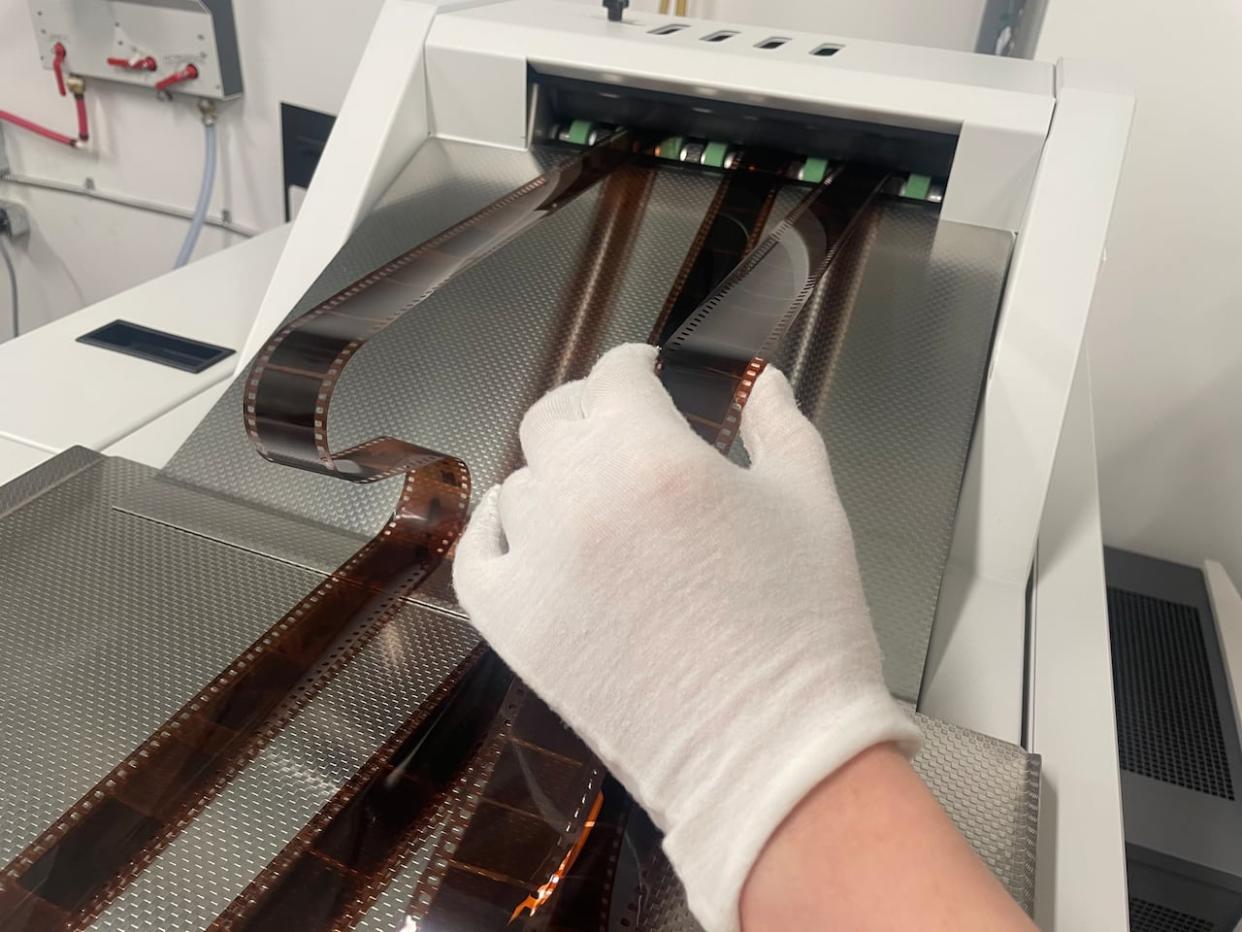
For Katie Sadie, owner of Rooney's shop in Hamilton, nothing beats looking through the waist-level viewfinder of a Pentax 67.
"It's better than real life."
A long-time freelance photographer, who also studied photography in school, Sadie says there's something about film that smartphones and digital cameras can't capture.
It's a feeling more Hamiltonians seem to be sharing.
Like the rise of vinyl a decade ago, film photography is having a renaissance. In the last few years, it's hit Hamilton.
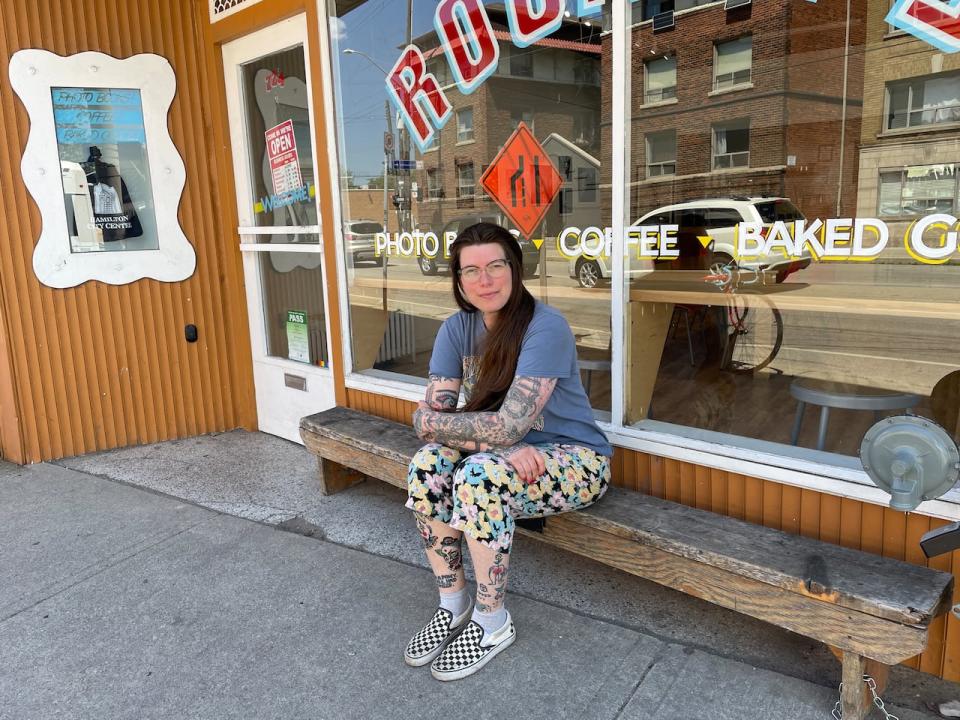
Katie Sadie freelanced as a photographer for 15 years before opening Rooney's in Hamilton. The shop now has a drop box for film canisters. (Eva Salinas/CBC)
Just look at Sadie's business.
Her coffee shop on Main Street East, Rooney's, serves as a hub for creatives and artists, with a focus on photography. There are photography books on the shelves, and a regularly rotating display of local shots on the wall, many of them done on film.
As of this week, it's now also a place you can send your undeveloped camera rolls.
The store, which only opened in 2022, has grown in popularity, to the point that independent film labs started reaching out to Sadie about a partnership.
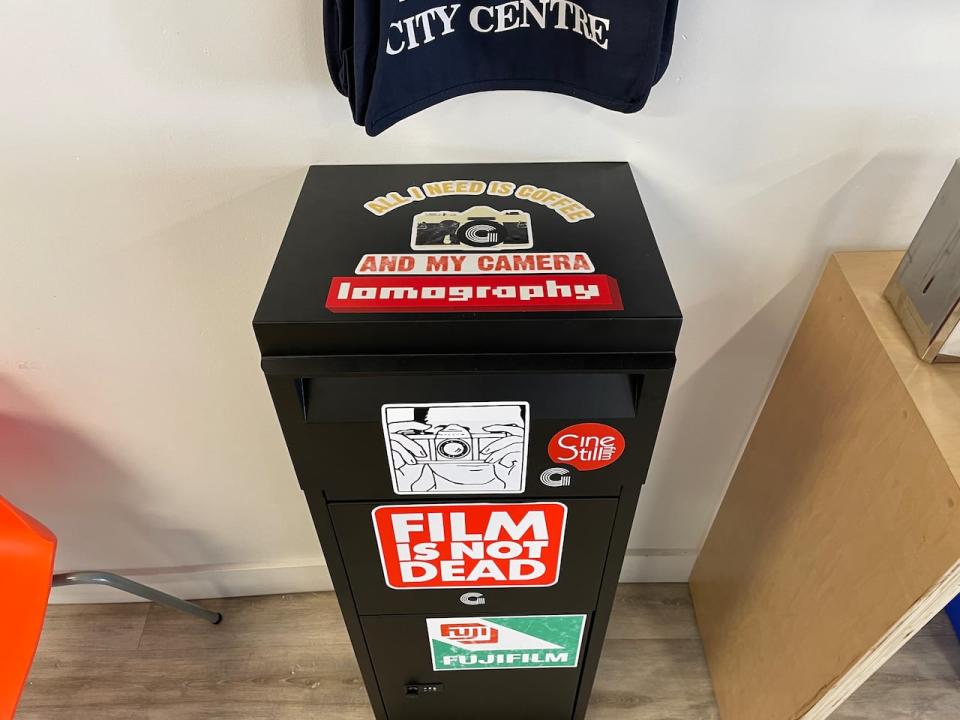
Rooney's partnered with Toronto-based Graination this week to install a film drop box. Hamilton photographers can drop their film canisters off to be developed in Toronto and returned the next week. (Eva Salinas/CBC)
The first was Toronto-based Graination, which this week placed a drop box for film canisters inside. Customers can drop off their roll, and every week, a truck will take the deposits to the Chinatown lab for development. Then, an envelope of prints will be trucked back a week later.
In the first two days, Sadie says six customers dropped off rolls. And she's hearing lots of excited feedback from her regulars.
Look of film 'still unmatchable'
Graination co-founder Neil Guo says the partnership was a way for his new business to branch out beyond Toronto's film market, which he says is already saturated with film labs. The company has already four more drop boxes they're about to send to other markets outside the city.
Guo has his own theories behind film photography's resurgence in the age of Instagram.
As phones have made picture-taking almost free and limitless, Guo thinks the finite, practical nature of film has brought meaning back to photography. Especially for younger photographers who grew up in a digital world.
"When it comes to film, [people] have to take photos of what they think is more valuable, that are worth $2 a shot," he said.
"We scan thousands and thousands of prints every single day," he said. "We don't really see people taking photos of [their] breakfast."
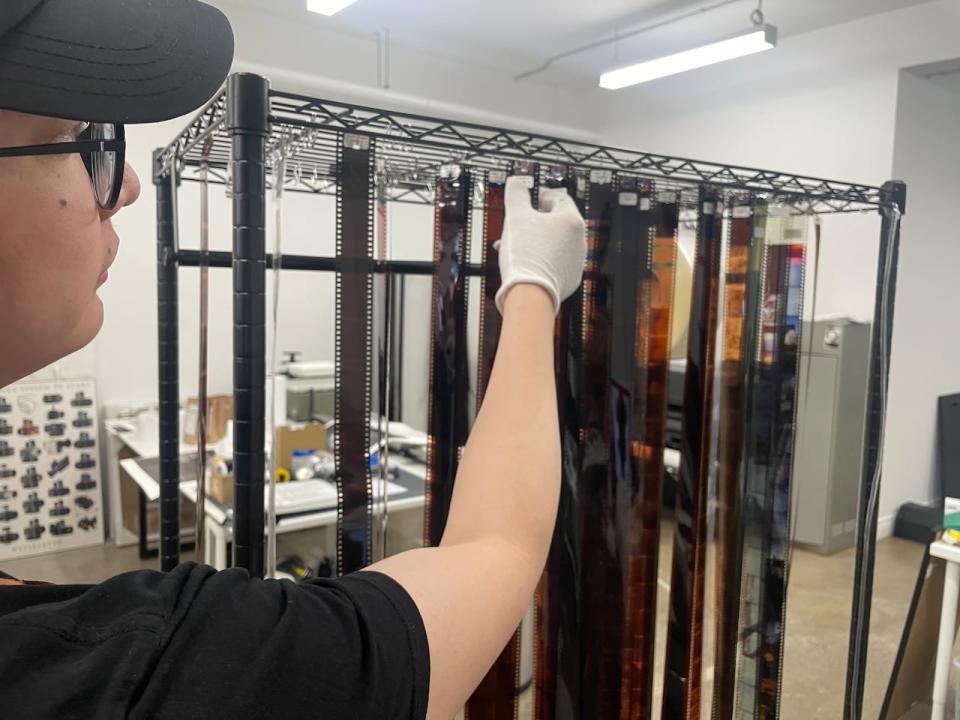
Neil Guo inspects a film roll at Graination, a Toronto-based film lab that's partnered with Rooney's in Hamilton. (Ethan Lang/CBC)
And then there's the quality of a film print.
"The look, I feel, is still unmatchable," Guo said.
Though the new drop-off box in Rooney's might signal a growing demand for film photography in Hamilton, the town has always had a place to get film developed.
Also in the east end, on Ottawa Street North, people have been able to drop their rolls off at Bell Arte Camera since 1972.
Ottawa Street shop developing 500 rolls a week
They still develop film in-house, though owner Robert Bagliolid says the service was on life support for a time.
In the late 2000s, he says, the store was developing about 50 rolls a week, which made just enough money to keep the equipment running.
Since the pandemic lockdowns of 2020, he says, the weekly average has gone up to 500 rolls, coming in from Niagara, Toronto, Brantford and beyond.
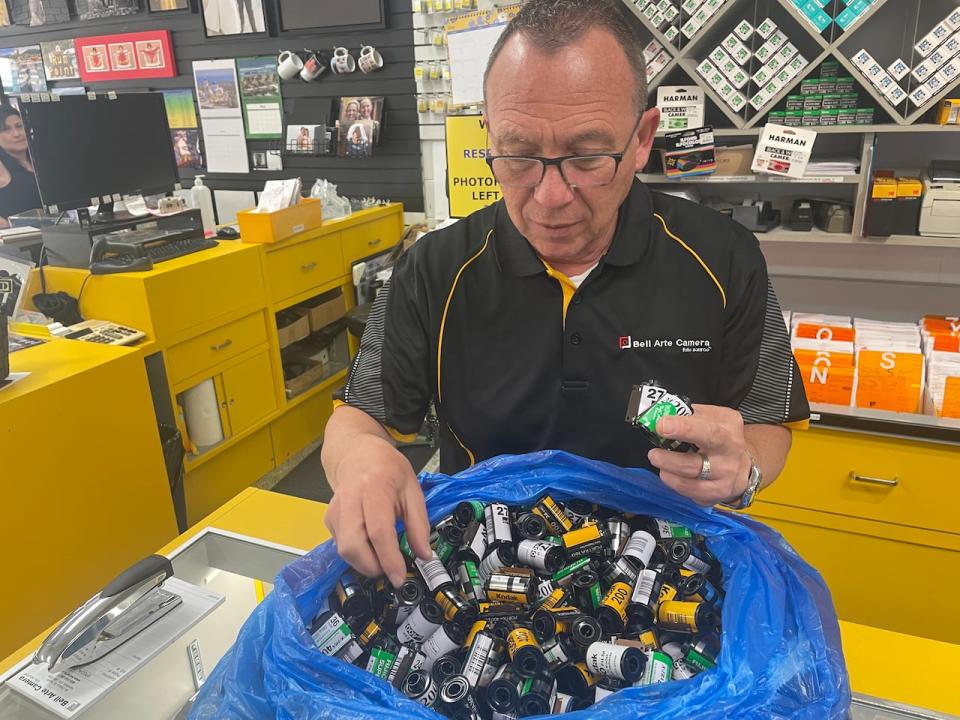
Bell Arte Camera owner Robert Bagliolid says in the late 2000s, when digital had taken over film photography, his Hamilton-based business developed about 50 film rolls a week. Since the start of the pandemic, he says the weekly average is closer to 500. (Eva Salinas/CBC)
Bagliolid says the younger customers he talks to mention similar draws to the analogue medium: it's more tactile, it's private, and it takes time and focus.
"It's not just a click and instant gratification," Bagliolid says. "It's a click with a mystery."
For him, nothing beats watching his customers go through their developed photos.
"It's like watching them open up a Christmas gift."
Local photographer and writer Steacy Easton, who's teaching a photography course in June at the Dundas Valley School of Art, says both shops are helping to grow the number of film enthusiasts in the Hamilton area.
One of the best things to come out of the town's growing film community, they said, is sharing the passion.
"You can exchange and show [your creations] to other people, almost like trading cards."

